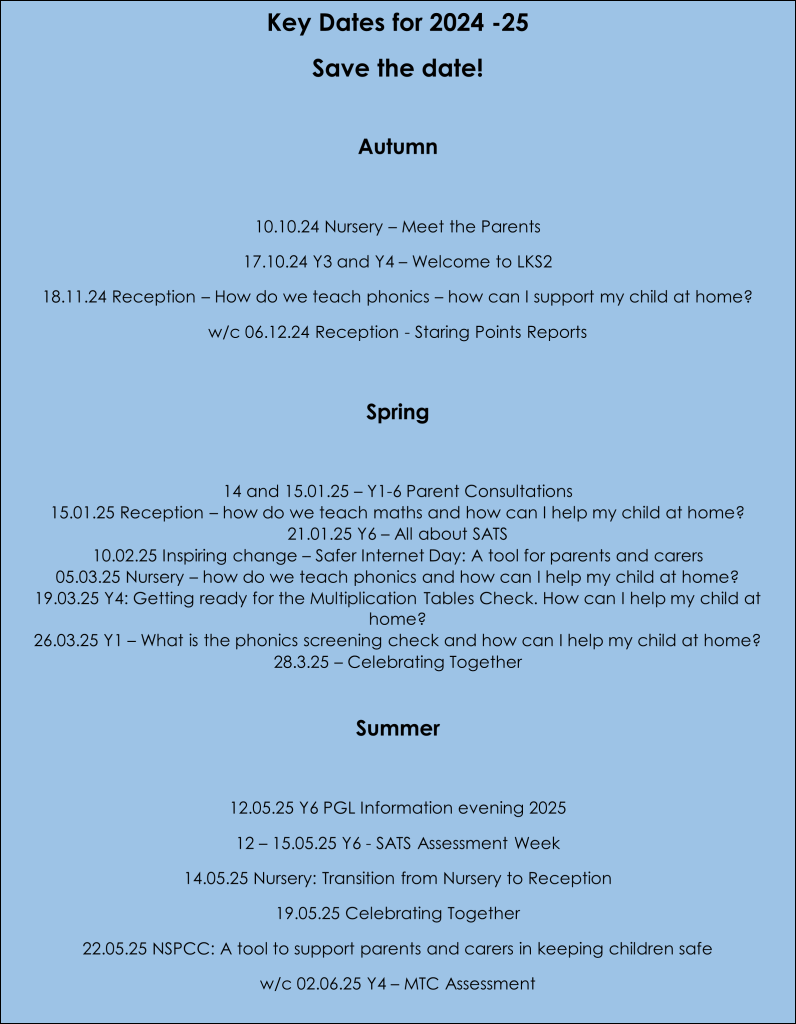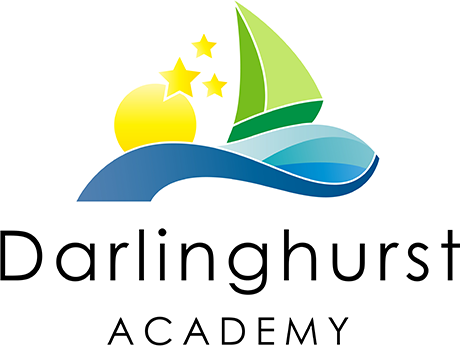Assessment and reporting
Darlinghurst Academy: Information sharing on Assessment and Reporting
Parent questions:
How well is my child doing?
Are they making progress?
What do they need to learn next?
How can I help them at home?
Opportunities:
We provide opportunities across the year for parents and carers to feel well informed.
We have a reporting cycle which includes parent consultations, book looks and reports.
The Reporting cycle is aligned to our assessment cycle. During this cycle children complete commercial assessment papers that are used alongside our target cards, tracking and Teacher Assessment.
*Opportunities to discuss progress informally with parents can be arranged via our general office.
What do the standards mean?
Children that are working at the Expected Standard (EXS) are working at age related expectations.
Children can also be working towards this standard (WTS) or working at a greater depth (GDS).
What national tests are there?
National tests are used at the start of their educational journey in Reception and at the end of Key Stage 2 in year 6.
*The national tests for end of key stage 1 are no longer reported nationally (Y2)
There are also National screening checks for Phonics (Y1) and for the Multiplication Check (Y4)
Where can I find information on the National tests and screening checks?
Where can I find information on the National tests and screening checks?
Phonics: Phonics screening check 2024: information for parents (text only version) – GOV.UK
MTC: Information for parents: multiplication tables check
SATS: Information for parents: 2024 national curriculum tests at the end of key stage 2 – GOV.UK
Links are also on our website : helping your child at home.
This area includes our parent information summaries for: phonics, multiplication, sats, and the 11 plus.
Tea and Talks are held to inform parents and suggest ways to help children at home for phonics, the Y4 MTC and Y6 SATS.
| What happens in the Autumn Term? |
| The Autumn term is a time to settle and build relationships. Opportunities for informal communication are used between staff, parents and carers. Types of assessment: Baseline assessments in Reception and Y6 to inform teaching and learning. Published assessment papers Y2 – Y6 (*Y6 use past SATS papers) Writing moderation Y1- Y6 *Internal phonics assessments take place every half term and information is used for groupings. This takes place for every year group. Reporting: Early Years starting points reports (December) sharing their level of development. *The phrase ‘a typical level of development’ is used to describe if a child is working typically for their age of development.. |
| Tea and Talks are held to share information. |
| Nursery and reception – Welcome to EYFS Y3 and Y4 – Welcome to lower key stage 2. What happens in year three and four? Reception – How do we teach phonics – how can I support my child at home? |
| What happens in the Spring Term? |
| The Spring term includes parent consultations and a chance to celebrate together, looking at work. Types of assessment: Year 4 complete a multiplication check for practice and assessment. We call this the MTC mock. Half Termly Phonics Assessments Published assessment papers Y1 – Y6 (*Y6 use past SATs paper for their Mock test) Writing moderation: Reception – Y6 *Internal phonics assessments take place half termly and information is used for groupings. This takes place for every year group. Reporting: Y1 – Y6 Parent Consultations (January) *The phrase ‘expected standard’ is used to describe if a child is working at, towards age related expectation or working at greater depth. Celebrating together: Parents/carers are invited to join their children to look at workbooks together. This gives opportunity for children to talk about their learning, share their progress and work they are most proud of. (March) |
| Tea and Talks |
| Reception – how do we teach maths and how can I help my child at home? Nursery – how do we teach phonics and how can I help my child at home? Inspiring change – Safer Internet Day: A tool for parents and carers Y6 – All about SATS Y4- Getting ready for the Multiplication Tables Check. How can I help my child at home? Y1 – What is the phonics screening check and how can I help my child at home? |
| What happens in the summer term? |
| The Summer term includes national assessments, opportunities to celebrate together and also prepare for next steps. This includes Transition. Parents receive an End of Year report that shares attainment and reflection for the academic year. Types of assessment Published assessment papers Y1 – Y5 Writing moderation Reception – Y6 *Internal phonics assessments take place every half term and information is used for groupings. This takes place for every year group. National assessments Early Learning Goals – Reception Y6 SATS assessment (May) Y1 Phonics Screening Check (June) Y2 Phonics Screening resit (June) Y4 Multiplication Check (June) Reporting End of Year reflection reports (July) *the phrase ‘expected standard’ is used within the reports for children in Year 1 – 6 for English and Maths. *the phrases ‘basic’, ‘advancing’ and ‘deep’ are used for understanding in Foundation subjects. *the phrase ‘good level of development’ is used to report against ‘Early Learning Goals’ for Reception Celebrating together Parents/carers are invited to join their children to look at workbooks together. This gives opportunity for children to share their learning and progress and work they are most proud of. Books are taken home for parents and children to keep. (July) Transition Children have planned opportunities to meet their future teacher on Transition Day. (start of July) Parents are informed of the name of the teacher and the class name. Informal opportunities are provided to meet the new teacher. (end of July) |
| Tea and Talks |
| Y6 Residential Information evening 2025 Y5 PGL Information evening for 2026 Nursery: Transition from Nursery to Reception NSPCC: A tool to support parents and carers in keeping children safe |







